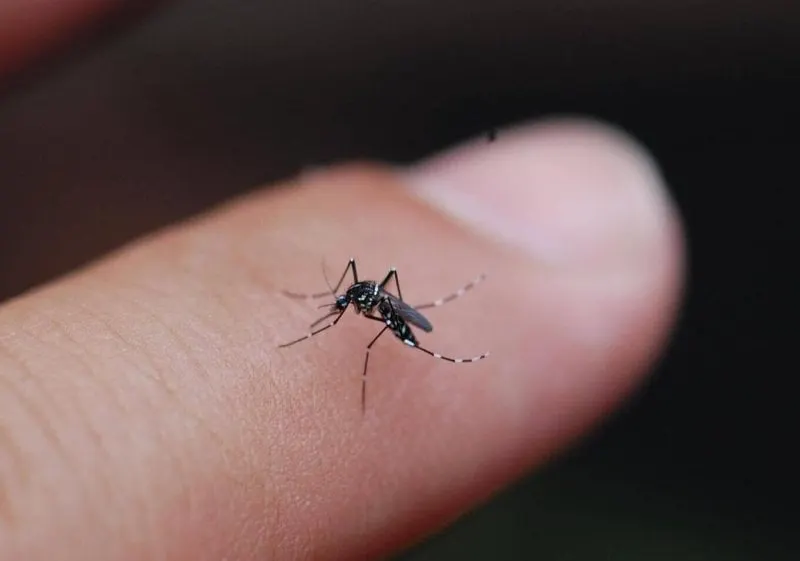‘100 peer reviewed safety studies’: Here’s the skinny on eradicating disease-carrying insects with ‘self-limiting’ genetic technology
‘100 peer reviewed safety studies’: Here’s the skinny on eradicating disease-carrying insects with ‘self-limiting’ genetic technology


Oxitec’s Friendly male mosquitoes are engineered using precise genetic tools; they are just like their wild relatives — but with the addition of two extra genes that create the non-biting, self-limiting and non-persistent characteristics of the Friendly male mosquito.
“We call this method ’self-limiting,’ because the released insects and the self-limiting gene that they pass on disappear from the environment,” says Meredith Fensom, Head of Global Public Affairs at Oxitec. “This method can be applied to all kinds of insect pests — from the mosquitoes that transmit such diseases as dengue and Zika, to moth caterpillars that destroy maize fields.”
The safety and efficacy of Oxitec’s insects is demonstrated by more than 100 peer-reviewed publications about the technology, available on the company’s website.
…
As farmers around the world have become more and more dependent on insecticides, the insects’ growing resistance and the chemicals’ non-targeted nature [has] farmers scrambling for less harmful solutions. The farm-Friendly™ versions of common farm pests such as diamondback moths and olive flies are designed only to target the pests in question — eliminating the need for toxic chemicals and preserving the health of the soil, pollinators and the overall ecosystem.
This is an excerpt. Read the original post here.

 | Videos | More... |

Video: Nuclear energy will destroy us? Global warming is an existential threat? Chemicals are massacring bees? Donate to the Green Industrial Complex!
 | Bees & Pollinators | More... |

GLP podcast: Science journalism is a mess. Here’s how to fix it

Mosquito massacre: Can we safely tackle malaria with a CRISPR gene drive?

Are we facing an ‘Insect Apocalypse’ caused by ‘intensive, industrial’ farming and agricultural chemicals? The media say yes; Science says ‘no’
 | Infographics | More... |

Infographic: Global regulatory and health research agencies on whether glyphosate causes cancer
 | GMO FAQs | More... |

Why is there controversy over GMO foods but not GMO drugs?

How are GMOs labeled around the world?

How does genetic engineering differ from conventional breeding?
 | GLP Profiles | More... |

Alex Jones: Right-wing conspiracy theorist stokes fear of GMOs, pesticides to sell ‘health supplements’




 Viewpoint — Fact checking MAHA mythmakers: How wellness influencers and RFK, Jr. undermine American science and health
Viewpoint — Fact checking MAHA mythmakers: How wellness influencers and RFK, Jr. undermine American science and health Viewpoint: Video — Big Solar is gobbling up productive agricultural land and hurting farmers yet providing little energy or sustainabilty gains
Viewpoint: Video — Big Solar is gobbling up productive agricultural land and hurting farmers yet providing little energy or sustainabilty gains Trust issues: What happens when therapists use ChatGPT?
Trust issues: What happens when therapists use ChatGPT? Fighting deforestation with CO2: Biotechnology breakthrough creates sustainable palm oil alternative for cosmetics
Fighting deforestation with CO2: Biotechnology breakthrough creates sustainable palm oil alternative for cosmetics California, Washington, Oregon forge immunization alliance to safeguard vaccine access against federal undermining
California, Washington, Oregon forge immunization alliance to safeguard vaccine access against federal undermining 30-year-old tomato line shows genetic resistance to devastating virus
30-year-old tomato line shows genetic resistance to devastating virus The free-range chicken dilemma: Better for birds, but with substantial costs
The free-range chicken dilemma: Better for birds, but with substantial costs ‘You have to treat the brain first’: Rethinking chronic pain with Sanjay Gupta
‘You have to treat the brain first’: Rethinking chronic pain with Sanjay Gupta
